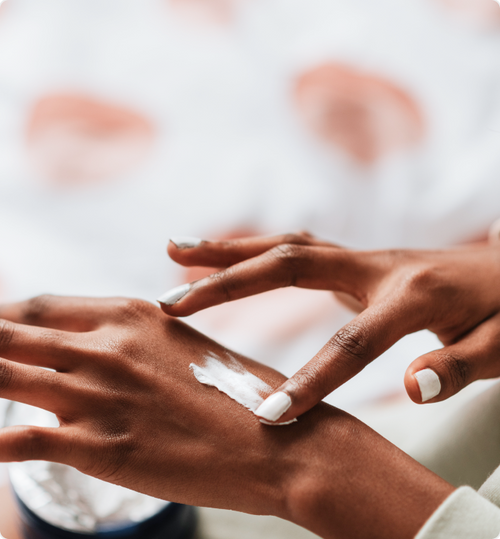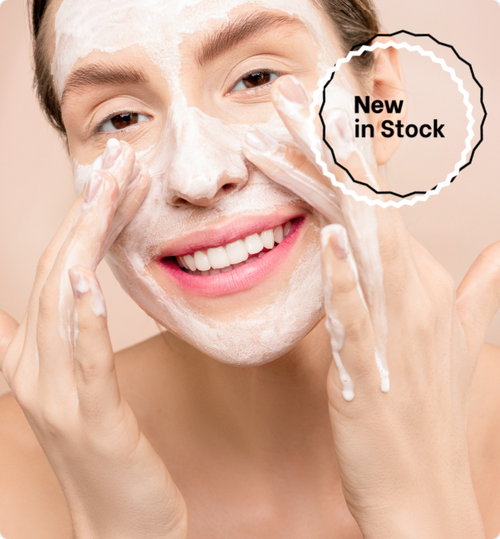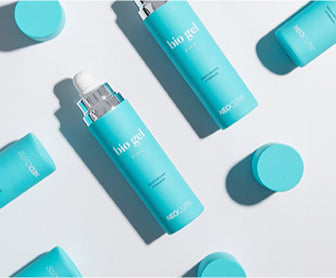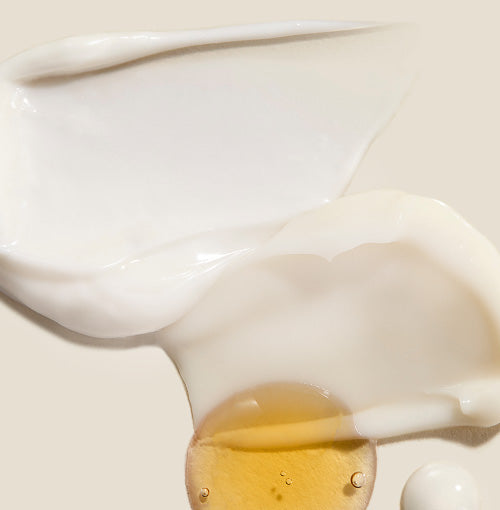What is the Skin Barrier and How Does it Work?
Most people know that the skin is the body's largest organ. But what many may not think about is the fact that our skin serves as a protective barrier between our body and the external environment. This barrier is known as the skin barrier and plays a crucial role in maintaining healthy skin. In this skincare blog, we will dive into this topic and discuss the skin barrier in detail, how it works, how to protect it from damage, and how to repair it.
About the Skin Barrier
The skin barrier is a protective layer that covers the skin's surface, serving as the body's first line of defense against external stressors, such as pollutants, bacteria, and UV radiation. It is made of several layers of skin cells, lipids, and natural moisturizing factors that all work together to keep the skin healthy and hydrated.
The outermost layer of the skin, called the stratum corneum, is particularly important in maintaining the skin barrier. This layer comprises dead skin cells that are tightly packed together, forming a barrier that prevents water loss and protects against external stressors. The stratum corneum also contains lipids and natural moisturizing factors that help to keep the skin hydrated and healthy.
The skin barrier is essential in maintaining overall skin health. A compromised barrier can lead to skin issues, including dryness, irritation, and inflammation. A damaged skin barrier can also make the skin more susceptible to environmental stressors, leading to premature aging and other skin concerns.
In short, the skin barrier is a crucial component of healthy skin; so protecting and strengthening it is a great way to maintain optimal skin health.
How the Skin Barrier Works
The skin barrier works by preventing water loss from the skin and keeping harmful substances out. It is a selective barrier that allows essential substances—such as oxygen and nutrients—to pass through while blocking harmful substances —including UV rays, bacteria, pollutants, and more—from entering the skin.
The lipids in the skin barrier play a crucial role in maintaining the barrier's integrity. These lipids, which include ceramides, cholesterol, and fatty acids, form a protective layer on the skin's surface, preventing water loss and keeping harmful substances out.
The skin barrier also contains immune cells that help to protect the skin from infections and other harmful agents. These immune cells, such as Langerhans cells and T-cells, are found in the epidermis and play a crucial role in maintaining the skin's immune function.
How to Protect the Skin Barrier
The skin barrier can be damaged by a variety of factors, including harsh soaps, hot water, sun damage, and over-exfoliation. To protect the skin barrier, many professionals recommend using gentle skincare products that do not strip the skin of its natural oils.
5 Tips to Protect the Skin Barrier
- Use a gentle cleanser: Choose a gentle cleanser that does not contain harsh ingredients that can strip the skin of its natural oils.
- Avoid hot water: Hot water can strip the skin of its natural oils, leading to dryness and damage to the skin barrier. Use lukewarm or, even better, cool water to bathe or shower and cleanse your face and hand.
- Use a moisturizer: Moisturizers help to keep the skin hydrated and prevent water loss, which can damage the skin barrier.
- Use sunscreen: Sun damage can weaken the skin barrier, so it is essential to use a quality sunscreen with a high SPF to protect the skin from UV radiation.
- Avoid over-exfoliation: Over-exfoliating can damage the skin barrier and cause irritation and dryness. Limit exfoliation to once or twice a week, instead of multiple times per day.
How to Repair the Skin Barrier
If your skin barrier has been damaged, you're in luck, because there are some simple things you can incorporate into your skincare to help repair it.
5 Tips to Repair the Skin Barrier
- Use a gentle cleanser: As mentioned earlier, choose a gentle cleanser that does not contain harsh ingredients that can further damage the skin barrier. This will give your skin the opportunity to repair itself as it is being nourished, instead of damaged.
- Use a moisturizer: Moisturizers help to hydrate the skin and restore the skin barrier's natural lipid barrier.
- Use skincare with ceramides: Ceramides are essential lipids that help to restore the skin barrier. Look for skincare products that contain ceramides.
- Use products with niacinamide: Niacinamide is a form of vitamin B3 that has been shown to help repair the skin barrier and improve the skin's overall appearance.
- Avoid harsh products: Avoid using products that contain harsh ingredients, such as alcohol and fragrance, which can further damage the skin barrier.
Skin Barrier FAQs
Q: What happens when the skin barrier is damaged? A: When the skin barrier is damaged, the skin becomes more susceptible to environmental stressors, such as pollutants, UV radiation, and bacteria. It can also lead to dryness, redness, and irritation.
Q: How can I tell if my skin barrier is damaged? A: Some signs of a damaged skin barrier include dryness, flakiness, redness, and irritation.
Q: Can the skin barrier be naturally strengthened? A: Yes, certain lifestyle habits can help to naturally strengthen the skin barrier. These include staying hydrated, eating a healthy diet rich in antioxidants like berries, and getting enough sleep.
Q: Can certain skincare products damage the skin barrier? A: Yes, some skincare products contain harsh ingredients that can damage the skin barrier. Alcohol, fragrance, Sodium Lauryl Sulfate (SLS), harsh exfoliants, and even retinoids can damage the skin barrier.
Q: Can using too many skincare products damage the skin barrier? A: Yes, using too many skincare products can overwhelm the skin and lead to irritation and damage to the skin barrier. Stick to a targeted routine designed for your unique skin type and quarks. You can get personalized advice about skincare products here.
Q: Can I repair my skin barrier overnight? A: Unfortunately, repairing the skin barrier is not an overnight process. It can take several weeks to see improvements; consistency is key.
Q: Are there any medical conditions that can affect the skin barrier? A: Yes, certain medical conditions, such as eczema and psoriasis, can affect the skin barrier and make it more susceptible to damage. For these conditions, we recommend working closely with a dermatologist.







Leave a comment